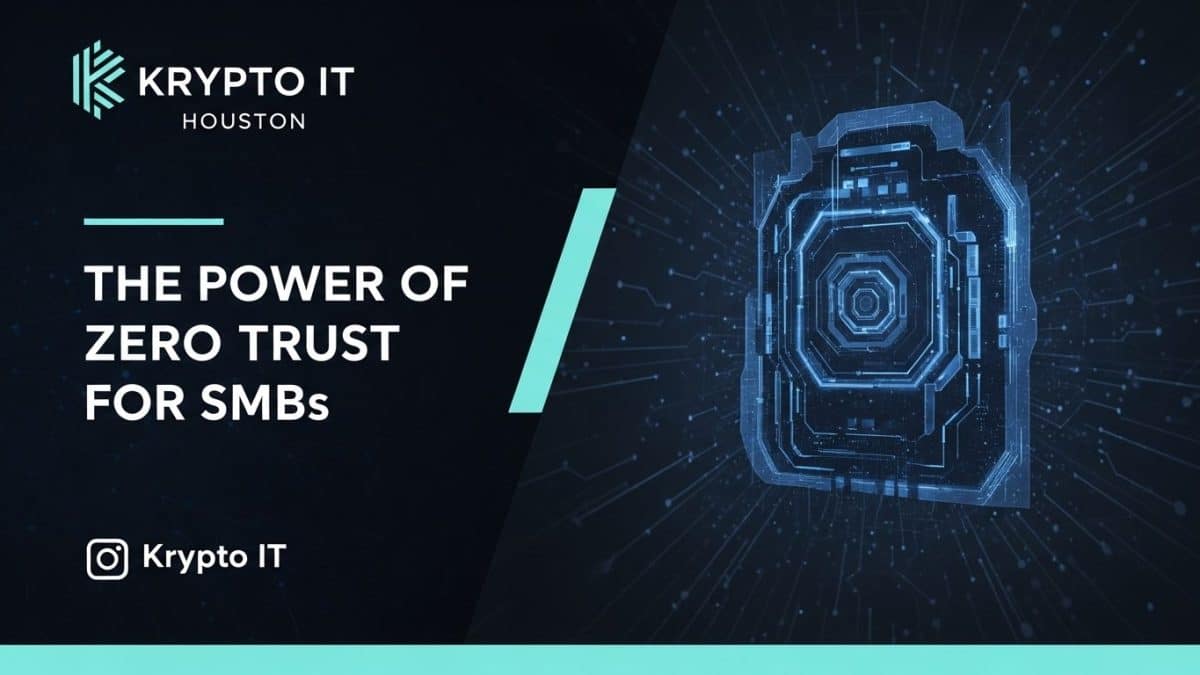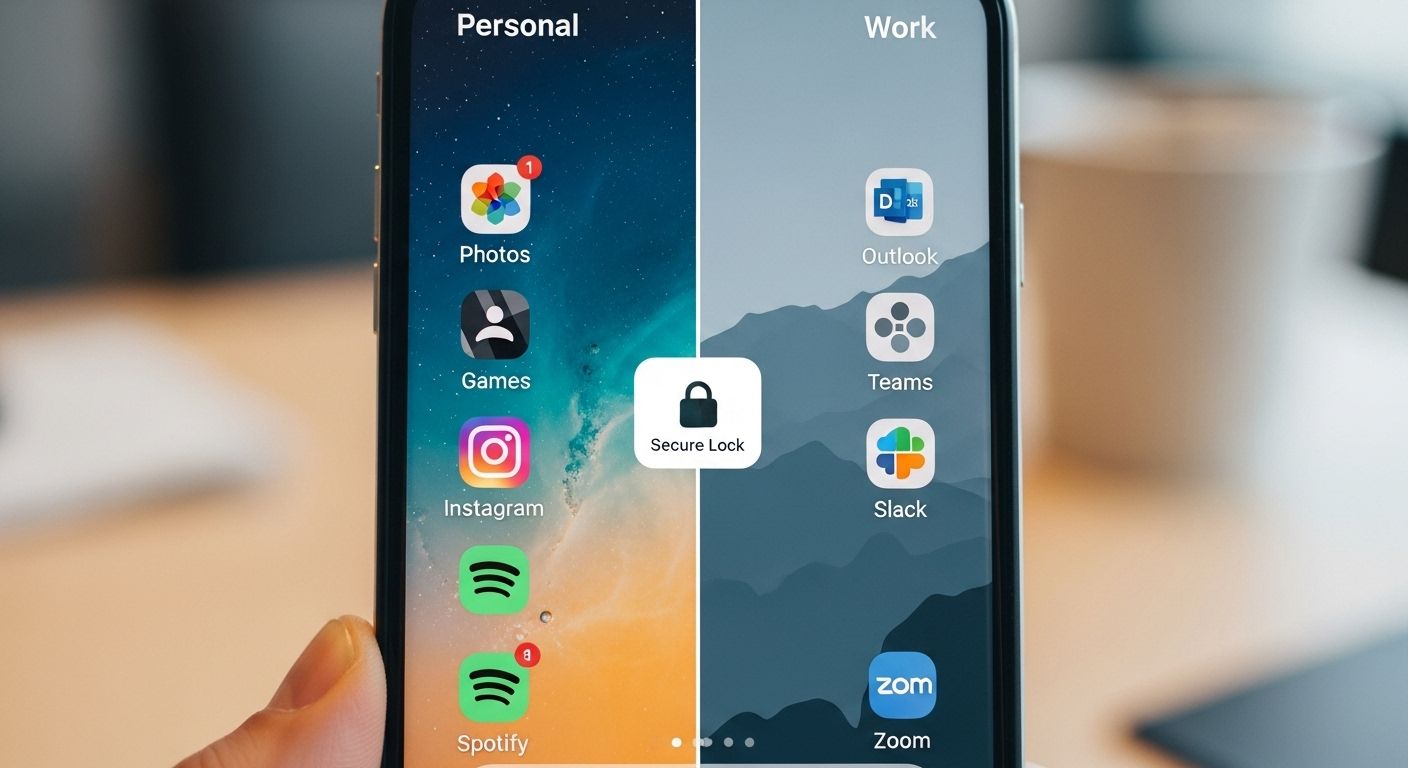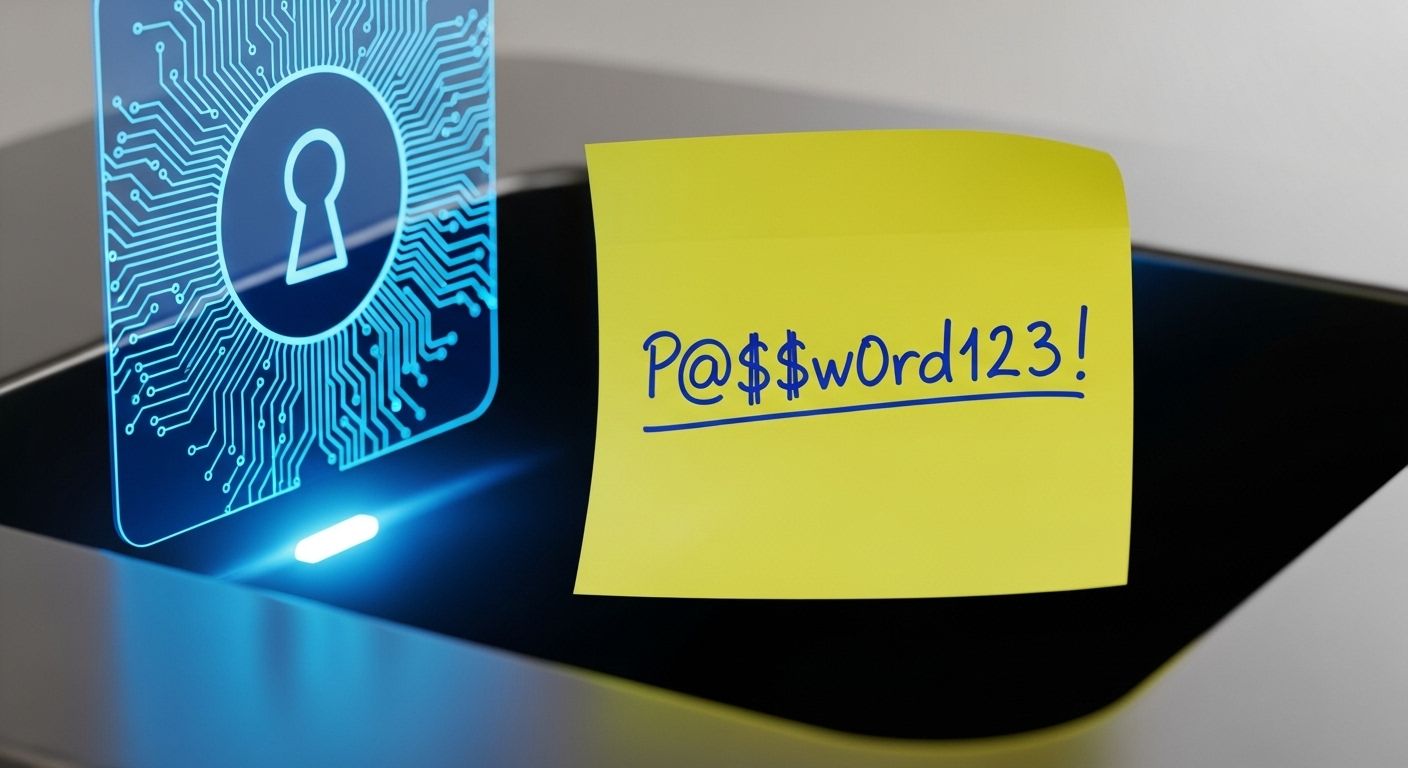
AI’s Dark Side: How Cybercriminals Are Exploiting AI Against SMBs
May 30, 2025
Ransomware: The Evolving Digital Hostage Crisis
June 2, 2025Why “Never Trust, Always Verify” is Your Business’s New Cybersecurity Mantra
For years, traditional cybersecurity models operated like a castle and moat. Once you were inside the network perimeter, you were generally considered trustworthy. But in today’s interconnected world, with remote work, cloud applications, and sophisticated cyber threats, that “trust but verify” approach has become a dangerous gamble, especially for Small and Medium-sized Businesses (SMBs) in Houston.
Enter Zero Trust Architecture (ZTA) – a revolutionary approach that flips the traditional model on its head. Instead of assuming trust, Zero Trust operates on one fundamental principle: “Never trust, always verify.” This isn’t just a catchy phrase; it’s a complete paradigm shift in how your business approaches security.
So, what exactly is Zero Trust Architecture, and why is it no longer just for big corporations, but a critical necessity for SMBs like yours?
What is Zero Trust Architecture?
Imagine your office. In the past, once an employee walked through the front door, they often had relatively free reign to access different departments and resources. In a Zero Trust model, it’s like every single room, every file cabinet, and every computer requires its own unique key and verification, even for someone already “inside” the building.
Zero Trust means that no user, device, or application is inherently trusted, regardless of whether they are inside or outside your traditional network boundaries. Every single access request, whether it’s an employee trying to open a document, a contractor connecting to a server, or an application trying to communicate, is rigorously authenticated, authorized, and continuously validated before access is granted.
Here are the core principles that define Zero Trust:
- Verify Explicitly: Don’t assume. Always authenticate and authorize based on all available data points. This includes user identity, device health, location, the service or application being accessed, and even behavioral analytics.
- Use Least Privilege Access: Users and devices are given only the minimum access privileges required to perform their specific tasks – and only for the duration needed. This significantly limits the potential damage if an account or device is compromised. Think of it as giving someone only the exact tool they need for a job, instead of the entire toolbox.
- Assume Breach: Zero Trust operates with the mindset that a breach is inevitable or has already occurred. This “assume breach” mentality shifts the focus from simply preventing attacks to actively containing them and minimizing their impact, should they occur.
- Micro-segmentation: Your network is divided into smaller, isolated segments. This means that even if a threat actor manages to breach one part of your network, they are severely restricted from moving laterally to other areas. It’s like having firewalls within your network, not just around it.
- Continuous Monitoring and Validation: Trust is never granted permanently. Access is continuously monitored and re-validated based on ongoing risk assessments. If a user’s behavior changes, or a device’s security posture degrades, access can be immediately revoked or adjusted.
Why is Zero Trust Important in Modern Cybersecurity for SMBs?
The digital landscape has changed dramatically, and so have the threats. For SMBs, the traditional “perimeter security” model is simply no longer enough. Here’s why Zero Trust is crucial for your business in Houston:
- The Blurring of the Network Edge: The concept of a defined “network perimeter” is rapidly disappearing. Your employees work from home, coffee shops, and client sites. They access cloud-based software (SaaS), use personal devices (BYOD), and connect to your critical data from anywhere. Traditional firewalls and VPNs, while still useful, can’t fully protect this distributed environment. Zero Trust brings robust security to every access point, regardless of location.
- Ransomware and Advanced Threats: Cybercriminals are more sophisticated than ever. Ransomware, phishing, and supply chain attacks are rampant, and SMBs are increasingly targeted because they often have fewer resources dedicated to cybersecurity. Zero Trust significantly reduces your attack surface and limits the “blast radius” if an attacker does get in. By preventing lateral movement, a breach in one area doesn’t automatically mean your entire business is compromised.
- Insider Threats: Not all threats come from outside. Accidental data leaks, compromised employee accounts, or even malicious insiders can pose significant risks. Zero Trust’s principle of least privilege and continuous verification helps mitigate these internal threats by ensuring that even trusted employees only have access to what they truly need.
- Regulatory Compliance: Many industries have strict regulations regarding data privacy and security (e.g., HIPAA for healthcare, PCI DSS for credit card data). Zero Trust principles, with their emphasis on granular access control and continuous monitoring, can significantly help SMBs meet and demonstrate compliance requirements, reducing the risk of costly fines and reputational damage.
- Cost-Effective Security: While implementing Zero Trust might seem like a large undertaking, it often leads to long-term cost savings. By proactively preventing breaches and limiting their impact, you reduce potential financial losses from downtime, data recovery, legal fees, and reputational damage. Furthermore, modern Zero Trust solutions are designed to be scalable and integrated, often leveraging existing security tools to build a more robust defense without requiring a complete overhaul of your IT infrastructure.
- Securing Cloud and Hybrid Environments: As SMBs increasingly adopt cloud services (Microsoft 365, Google Workspace, etc.), Zero Trust becomes paramount. It ensures that access to your cloud applications and data is just as secure as on-premises resources, with consistent policies applied across your entire digital footprint.
Krypto IT: Your Partner in Zero Trust
Implementing Zero Trust isn’t about buying a single product; it’s a strategic shift that requires careful planning and execution. As your local Houston cybersecurity experts, Krypto IT can help your SMB navigate this transition. We understand the unique challenges faced by small and medium businesses and can tailor a Zero Trust strategy that is both effective and manageable.
Don’t wait for a breach to realize the importance of a “never trust, always verify” approach. Take the proactive step to secure your business in today’s complex threat landscape.
Contact us today to schedule a free consultation and learn how Krypto IT can help you build a resilient Zero Trust Architecture for your business.




